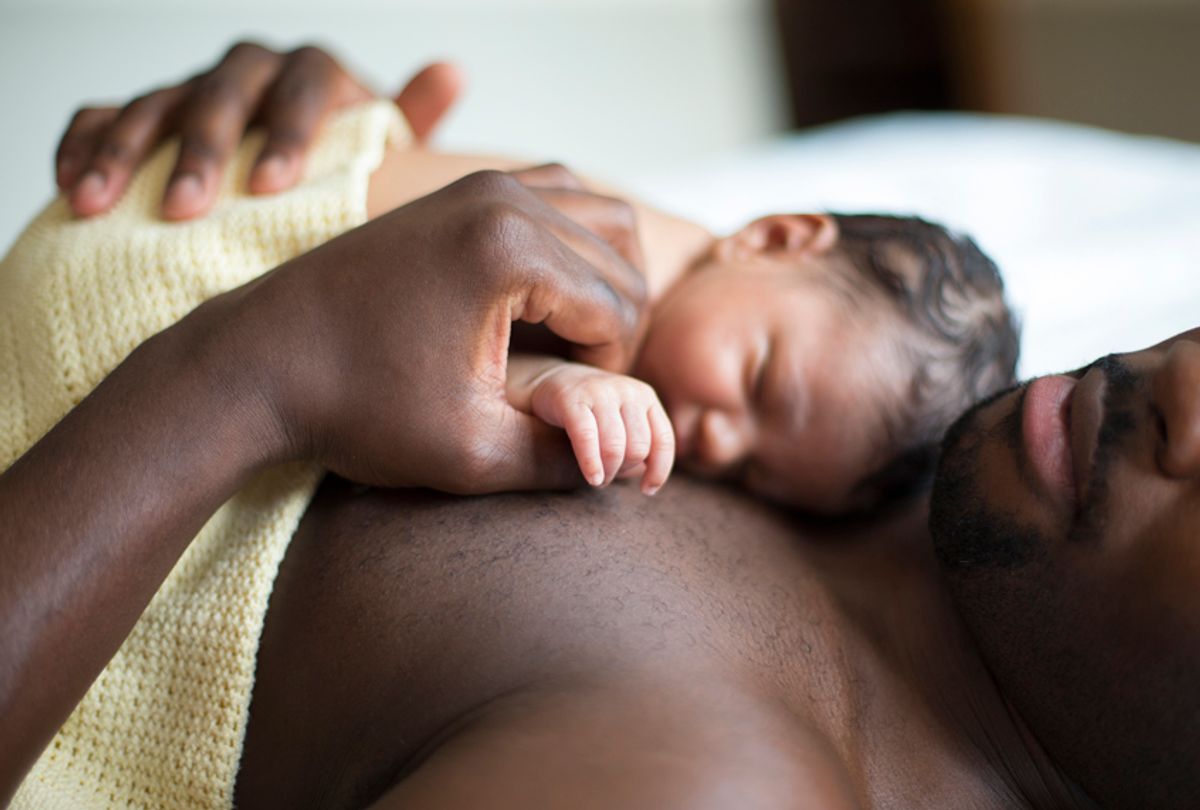In April, German biology researchers released a study that set forth an eyebrow-raising proposition: Might men who exercise have more intelligent children?
The study, which was published in the peer-reviewed journal Cell, examined genetically identical mice who were raised in sedentary lifestyles. Once they reached adulthood, half from the original group were moved to cages full of equipment to encourage them to be physically active. (Apparently mice like going to the gym.) The other half remained sedentary. After 10 weeks, scientists found that the physically active mice performed better on cognitive tests than the inactive ones.
But what really caught the attention of researchers was that when the active male mice mated with a female mouse, their offspring appeared to learn faster than the offspring of the inactive ones.
“Here, we show that exposure of adult male mice to an environmental enrichment paradigm leads to enhancement of synaptic plasticity and cognition also in the next generation,” the study concluded.
Read: The kids of the physically active mouse dads were smarter.
While mice are often used in experiments because their genetic and biological characteristics are similar to those of humans, mice are not humans. Hence, it is not entirely safe to assume that what is true for mice is true for humans (even if it is true in some cases — LD-50 toxicity tests, for example, tend to be accurate for mice and humans at the same dosages).
Yet the study adds to a growing body of research, accumulated largely in the last decade, that suggests that mother and father's health are equally responsible for the outcome of their newborn. That's a big change: In Western society, the mother has almost always been blamed for the health outcome of the newborn.
“Women are often blamed for everything, but every baby is 50 percent egg and 50 percent sperm,” Dr. Aimee Eyvazzadeh, a fertility specialist in the San Francisco Bay Area whose patients call her the “egg whisperer,” told Salon. “Sperm genetics can put a child at risk for diseases too.”
Casting blame on a women’s uterus and egg dates back to Greek physician Hippocrates of Kos. The Hippocratic corpus offered some questionable fertility therapies, mostly designed for women, that implied that fertility problems were the fault of the female partner.
Eyvazzadeh says that only in the last 10 years have doctors been learning a lot more about the role sperm plays in fertility and in the baby’s health. Indeed, she sees it as a result of the progress gender equality movements have made in Western society, which is now trickling down to science.
In 2010, researchers published a study in the journal Nature associating male obesity with male infertility. In 2014, additional research published in Nature found that sexually transmitted diseases can induce male infertility. According to a separate study published in the National Center for Biotechnology Information, male infertility affects an estimated one in 20 men, and epigenetic factors play an important role in it. Over the past several years, epigenetics — the study of heritable changes in gene expression — has contributed to groundbreaking insights into how male’s pre-conconception health impacts the baby. Indeed, further studies have suggested that if a father is obese, it is likely he will pass those genes on to offspring.
“Currently, future fathers are not involved in any life-style related preconceptional recommendations,” one 2017 study, published in Current Molecular Biology, reports. “However, if obesity can be shown to be a new determinant contributing to the development of detrimental health conditions in offspring, this may well need to change.”
Eyvazzadeh said it is extremely important for both parties of a couple to be in good health when trying to have children.
“A mother and father’s DNA influences the way an embryo develops. The egg and sperm DNA can influence how a gene is expressed,” Eyvazzadeh says. “It’s therefore extremely important for people to understand the significant influence your preconception DNA has on the future child’s genetics, development and lifetime of health.”
Dr. Paul Turek, a physician and men's reproductive health specialist who has clinics in both Beverly Hills and San Francisco, says one important finding that has been made over the last decade is that fertility itself is a biomarker for a man’s overall health.
As for the mouse study, Turek says to take it with a grain of salt, but it does indicate future paths for research.
“I see the Cell study as an extension of the whole concept that men’s health is linked to fertility potential,” Turek said. “I always tell fertile men for reproductive health the key is to be healthy; healthy men make healthier sperm and more of it.”
The hope, he added, is that increased awareness of the role a man’s sperm plays in a baby’s health, and overall fertility of a couple, will motivate men to take better care of their own health.
“All roads are pointing toward men being a very important part of the fertility picture and their health being a large part of that picture,” Turek said.



Shares